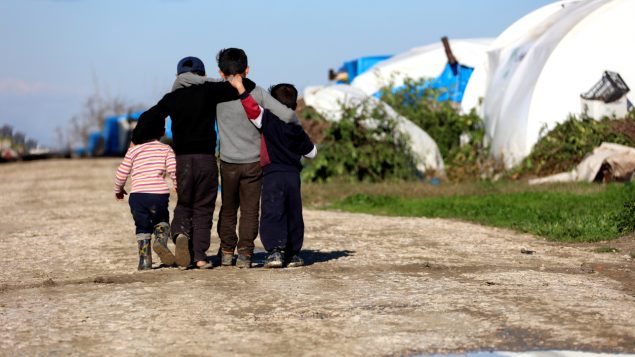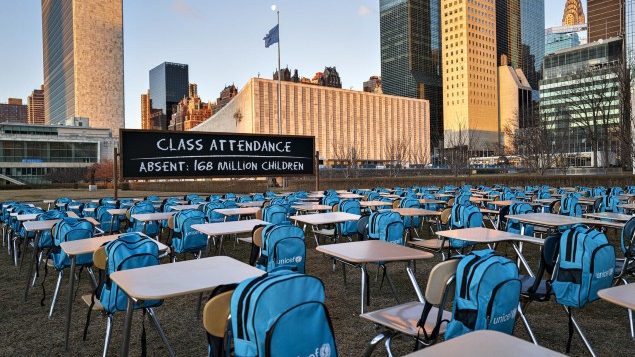The UN agency devoted to children is urging Canada and other countries to prioritize the reopening of schools around the world that have been closed due to COVID-19 restrictions. UNICEF says schools for more than 168 million children have been completely closed for almost a whole year and about 214 million children, or one in seven, have missed more than three-quarters of their in-person learning.
‘School…must be a national and global priority’
“Children and youth cannot afford another year of disruptions to their education,” said David Morley, President and CEO of UNICEF Canada. “Getting young people back to school – and keeping them in school safely – must be a national and global priority. Children’s right to education and their futures are at risk. The longer some children stay out of the school, the greater the risk that they will never return even if schools are re-opened.”
Not just learning is lost, says UNICEF
The risks are greatest for the most vulnerable children and those who have no access to remote learning, notes UNICEF. These include refugee and displaced children who may never return to school or may be forced into early marriage or child labour. Besides learning, children also benefit from being in school where they can interact with peers, seek support, access health and immunization services, get meals and be protected from violence and exploitation.
The Canadian branch of the agency calls on Canada’s government “to adopt an agenda for global COVID-19 recovery that includes children’s education, nutrition, health and protection, recognizing the critical role schools play in ensuring all of these aspects of children’s right to childhood.”

UNICEF says school closures are particularly hard for refugee and displaced children who may never return to school. (iStock)
Canada has made some commitments
In early February 2021, the Canadian government launched a three-year international effort to promote quality education and lifelong learning for refugees, forcibly displaced and host-community children and youth. It also launched a Refugee Education Council made up of youth advocates, teachers, parents and community leaders who are living in this group to help shape solutions to address education needs. At the same time, the government noted that at a G7 summit it hosted in 2018, it mobilized nearly $3.8 billion including its own investment of $400 million for the education of women and girls in crisis and conflict situations.
Teachers should be vaccinated, says UNICEF
As part of the current action, UNICEF wants all governments to prioritize teachers and education workers just ahead of frontline health workers and other high-risk groups in dispensing COVID-19 vaccines. This would help protect teachers from community transmission and help keep schools open, says the agency.
It also calls on all Canadians to help protect teachers and the right to education by visiting its website and sending a letter to relevant cabinet ministers.
Symbolic staging at UN headquarters
To support this effort, UNICEF unveiled a model classroom with 168 empty desks at the United Nations headquarters in New York. Each desk represents a million of the world’s children whose schools have been almost entirely closed for a year.
“This classroom represents the millions of centers of learning that have sat empty—many for almost the entire year. Behind each empty chair hangs an empty backpack—a placeholder for a child’s deferred potential,” said Henrietta Fore UNICEF Executive Director. “We do not want shuttered doors and closed buildings to obscure the fact that our children’s futures are being put on indefinite pause. This installation is a message to governments: we must prioritize reopening schools, and we must prioritize reopening them better than they were before.”







For reasons beyond our control, and for an undetermined period of time, our comment section is now closed. However, our social networks remain open to your contributions.